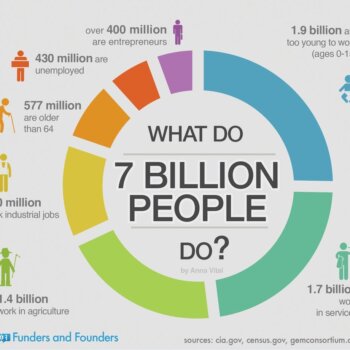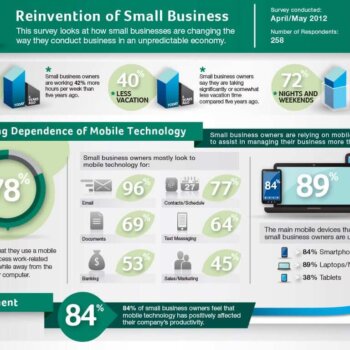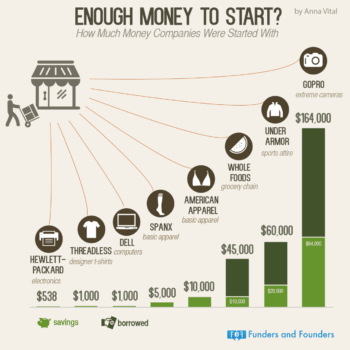You’d think the start-up scene would be pretty much the same in every country. After all, every entrepreneur has the same end goal — to change the world around them. However, I know from experience that such is not the case. There’s a marked difference in the start-up scene between the US and China, for example. What I’d like savvy entrepreneurs to know is that the more they understand other countries’ ecosystems and cultures, the higher their probability of success.
Differences across the Pacific
Did you know that as recently as 2005, one could literally count the number of VCs in China on two hands? While entrepreneurism runs deep in the US, it isn’t so in China. Venture capitalists sprouted up during the 1970s in the US as opposed to the 1990s in China. With entrepreneurship’s long history in the US, comes a wide support network of financiers, incubators, universities, government/business organizations and public-private partnerships. We don’t have this network in China. There’s also an “inspiration” factor in the US that didn’t exist in China, whereby US entrepreneurs could look to successes like Google and Apple that started small, received funding and grew into tech giants. “Inspired” entrepreneurs left these same companies and spurred new ones.
If you’re an American, striking out on one’s own is part of your culture, so is being bold and different. But in China, our mindset is different. It’s more of a ‘herd mentality’, with a cultural attitude about not sticking out, just staying the course and subtly doing better. I’m reminded of an old Chinese proverb, 枪打出头鸟, which translated means, “The shot hits the bird that pokes its head out.” There are several meanings to the phrase but the two most popular are “nonconformity gets punished” and “showing off among your peers is dangerous.”
So, with this mindset, in China we’ve viewed the road to success as getting a university degree and going to work for the government or a large company. The government or company’s “innovation” (and many in the US would argue that it’s not really innovation) would be to improve upon already established products or systems.
The Chinese Incubator Boom
But things are changing in China. I’ve seen the start-up scene explode the last two to three years. Why? Changing attitudes, economic growth and a huge boost from the Chinese government to start. We now even have our own “Googles” – inspiring Chinese companies like Tencent, Baidu, and Alibaba – which are growing domestically and globally.
With the boom comes more wealth, which fuels the economy, innovation and the entrepreneurial support structure. We’ve seen angel investors quadruple in just one year—giving China the distinction of having the largest number of such registered investors. We’ve also seen incubators thriving; it seems as if there’s one on every street corner these days!
Molded by Competition
China is catching up to the US, but challenges remain. The biggest challenge is competition—it’s fierce—and that’s putting it mildly. Take the example of food delivery services; you might have thousands of companies competing in this one area. Not so in the US, where even a handful of rivals is rare. This ferocious competition means Chinese companies have to really toil at differentiating themselves, and toiling most often takes the form of working long hours—there are no “banker’s hours” so to say in China. Add to that the scarcity of management and senior level resources, you can just imagine what the workday for an entrepreneur (and their staff) must be like.
Why does this matter to anyone outside of China? Because this “survival of the fittest” mentality breeds formidable survivors. And frankly, while China may be behind the US in some areas of innovation, it does have a leg up in one important one: the mobile device market. Here, Chinese companies have a local advantage—they are already experts at serving a user base that is mobile first. But maybe even more important, we’ve seen a huge change in attitude toward services – users now willing pay for content and software – and that’s an activity that was once very much frowned upon.
Looking to the Horizon
So what’s on the horizon? Most start-ups, whether American or Chinese, know the upside of going global and have made it a priority. It’s not just looking to each other for new customers and market expansion, but to take advantage of each other’s strengths. We see many Chinese companies, for example, setting up R&D centers and hiring local staff in America and vice versa.
I believe that Chinese and US entrepreneurs can learn from each other as they go after the global market in Europe, Southeast Asia and Latin America. It’s not only US companies that have been successful internationally, but Chinese companies too. Consider Huawei, whose Android smartphones are now the second most popular smartphone brand in Europe. We can also look to Kuaiya, an InnoSpring portfolio company, which already has 300 million users spanning Europe, Southeast Asia, and Latin America. That’s almost as many users as there are US citizens.
In short, changes are opening doors for entrepreneurs on both sides, making it easier to internationalize and collaborate. A global strategy is imperative—not in year three or four, but in year one. To me, those who effectively scale beyond their borders in year one—leveraging the advantages of both ecosystems —will be the ones that achieve ultimate success. And that’s what it’s all about.
_____________________________________________
About the Author
This article was written by Dr. Xiao Wang. Dr. Xiao Wang is general manager and chief fire starter at InnoSpring Silicon Valley. InnoSpring, with offices in US and China, is the first US-China technology incubator platform for globally minded startups. InnoSpring strives to accelerate cross-border entrepreneurship and innovation in the US, China and beyond by providing a nurturing startup ecosystem with the support of mentors, financing, and resources on both sides of the Pacific. Dr. Wang joined the company in 2012 and has obtained her Ph.D. in biochemistry from Case Western Reserve University and bachelor in Tsinghua University.






























